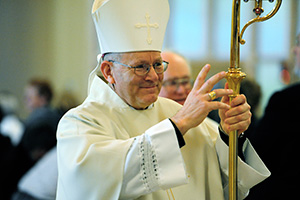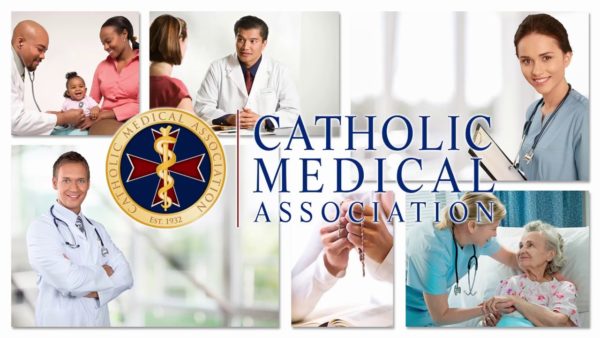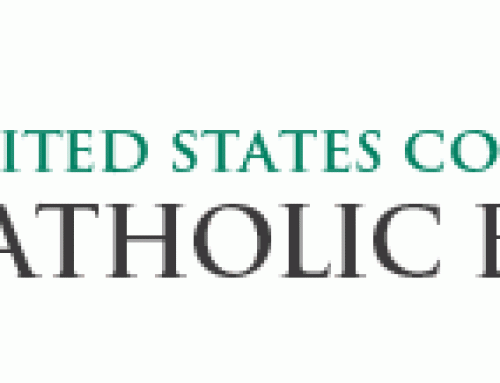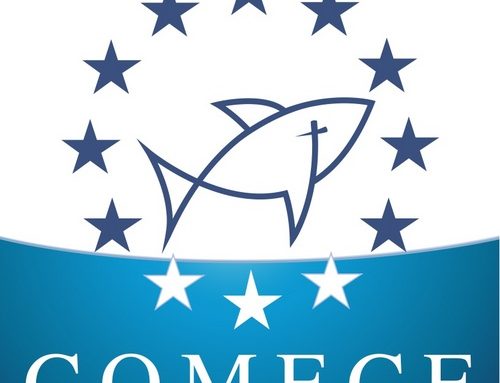Dear CMA Members and Friends,

I trust all of you are as tired as I am of hearing about the coronavirus pandemic and phrases such as shelter in place, social distancing, essential services, stay-at-home orders, executive orders and the like. I pray that these actions are as effective at stemming the tide of this virus as we hope.
Many of you are up to your elbows in the care and treatment of virus-infected persons and some of you are, like me, a temporarily displaced person. Each of us has a very important role to play in the scenes in which we find ourselves. Some provide direct medical service. Some stay at home and tend to matters of the family. Chaplains try, as best as they can, to make sacraments available to the most vulnerable and for those in critical condition. Bishops struggle to find the right balance between making the sacraments safely available and being mindful of the common good. It is recognized that we must respect civil law, pay attention to what the epidemiology specialists report, and at the same time not abandon the people of God at a time of great need. Yet when even those who study and work with the virus are uncertain about the method and rate of distribution, decisions about opening or closing churches are difficult.
I used to listen regularly to Garrison Keillor’s Prairie Home Companion. One of the fairly regular features of his program was an interview with the manager of the Fear Monger’s Shop. Perfectly innocent scenarios would be offered, such as, I plan to go to a movie, what’s the worst that could happen? The scene presented is that while I’m gone the cat could knock over the fishbowl, getting the cord to the lamp wet which causes a spark, which ignites the curtains… well you get the idea. I feel like I have been constantly in the Fear Monger’s Shop, considering the worst-case scenario for our churches and the virus. The unknown, the “what if” is ever present. What if an infected person contaminates, somehow, the hosts at Mass. What if the priest is unknowingly infected and while consecrating the Sacred Species breathes on the ciborium and contaminates every host in the ciborium? No measure of social distancing will make any difference. What if, what if, what if? What if it is further verified that six feet distance is not the magic number? Then keeping people six feet apart in church or in line waiting for sacraments all of a sudden begins to look irresponsible on the part of the Church.
With this uncertainty, as a bishop, I have decided to exercise the utmost caution, and even extreme caution, for the sake of the physical well-being of our society. This in no way implies that I value physical life more than spiritual life but it does manifest the degree of seriousness with which I approach this virus. I must maintain a healthy respect for the unknown. I see a similar attitude on the part of the Holy Father and Bishops as a whole.
I understand and expect that your patience and my patience will increasingly be challenged. I imagine that you already experience an increased impatience among your patients and your family. In this way, the pandemic becomes a type of apprenticeship in patience. How well we do in the midst of these increased stressors stands as a kind of barometer of the strength of our spiritual lives. Hopefully we recognize more clearly that we need God and each other!
We understand well that we are far from perfect but we do the best we can. Please know that I pray for you every day! Please know that I hold you in highest regard. I pray and trust that we will come through this, perhaps a little scarred, a little worse for wear, but nonetheless stronger, wiser, and together.
Bishop Robert Vasa is the Bishop of the Diocese of Santa Clara and the interim Episcopal Advisor to the Catholic Medical Association.






